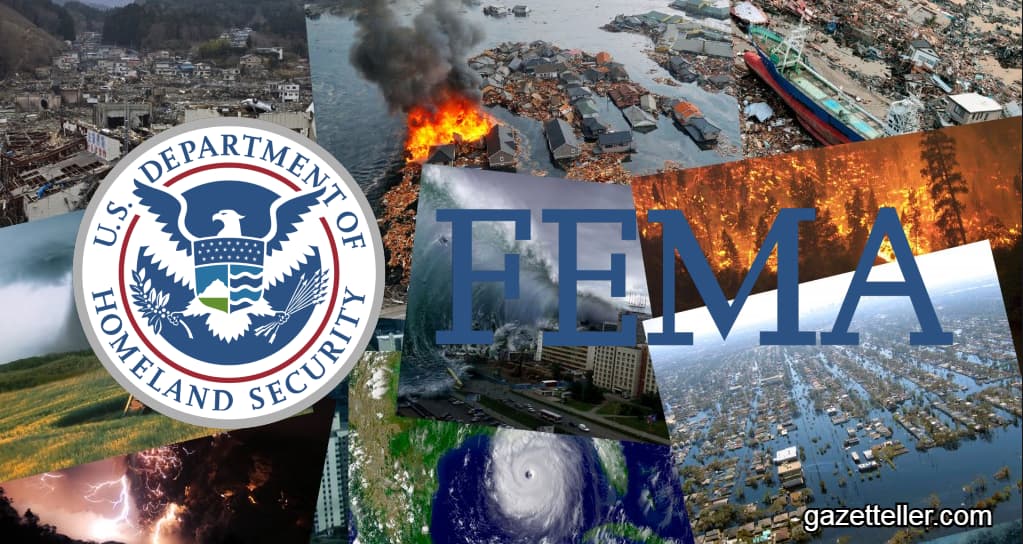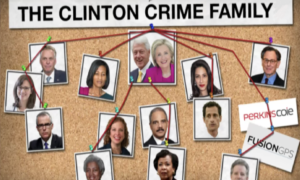The Federal Emergency Management Agency (FEMA) and the Federal Communications Commission (FCC) have recently announced their plans to conduct a nationwide emergency alert test on October 4th. This test, they claim, is to ensure that the alert system remains a reliable means of warning for a wide range of emergencies. But is there more to this story than meets the eye?
The public announcement was clear, stating, “This is a nationwide test of the Emergency Alert System, issued by FEMA, covering the U.S. from 2:20 p.m. to 2:50 p.m. ET. This is only a test. No action is required by the public.”
But why now?
Why such a sudden and extensive test?
The test, scheduled to last a mere minute, will be broadcast across various channels, including radio, television broadcasters, cable systems, satellite radio, television providers, and wireline video providers. The message will be available in both English and Spanish, depending on the device’s language settings.
But here’s where things get interesting. Authorities are urging the public to expect a flood of news stories and warnings leading up to the test. Why? To prevent panic, they say. FEMA and the FCC are working hand in glove with wireless providers, broadcasters, emergency managers, and other stakeholders to ensure that the public is well-informed about this test. But is this just a smokescreen for something more sinister?
Let’s rewind a bit. Remember the Maui wildfires? The emergency warning sirens in Maui failed to alert residents of the approaching wildfires on August 8th. Following this catastrophic failure, FEMA and the FCC felt the pressing need to test the effectiveness of these emergency alerts.
Herman Andaya, who was at the helm of the Maui Emergency Management Agency, faced a barrage of criticism and was eventually forced to step down. Andaya had defended his choice not to activate the outdoor all-hazard siren system as Lahaina was engulfed in flames. He argued that the sirens were primarily used for tsunami alerts, and activating them could have driven people towards the mountains or further inland, directly into the path of the fire.
Andaya’s defense was that the sirens, mostly located on the coastline, wouldn’t have made a difference, especially for those trapped by the fires on the Lahaina mountainsides. He stated, “You have to remember that that day in Lahaina, it’s an outdoor siren, so many people indoors, with their air conditioning on, wouldn’t even hear the siren.”
But here’s the kicker: If the sirens were indeed ineffective, why the sudden nationwide test? What are FEMA and the FCC not telling us?
***BEST NEWS HERE ON TELEGRAM!***
JOIN OUR CHANNEL
-https://t.me/BestNewsHereCould it be that the government is engineering its own “emergencies” to test and refine its control over the masses? Is this nationwide test just a precursor to a larger, more orchestrated event?
The FCC has even mentioned that the test will be postponed to October 11th if there’s widespread severe weather or other significant events on October 4th. This begs the question: Are they anticipating something we’re not privy to?
It’s a chilling thought, but when you connect the dots, the picture becomes disturbingly clear. The recent nationwide emergency alert test is just the tip of the iceberg. While the official narrative is that these tests are to ensure the reliability of alert systems, some insiders believe that there’s a more nefarious purpose at play.
Consider this: By creating controlled emergencies, FEMA can test not only their equipment but also gauge public reaction and compliance. It’s the perfect setup. Create a crisis, see how the public reacts, and then refine strategies for future events. It’s like a live-action drill, with the general populace as unwitting participants.
Moreover, these manufactured emergencies provide FEMA with an opportunity to justify their ever-increasing budget and power. Every time they “successfully” handle an emergency, they can argue for more funding, more equipment, and more authority. It’s a self-feeding cycle: create a problem, solve it, and then reap the rewards.
The implications of such actions are vast. If true, this means that the very agency tasked with protecting us might be putting us in harm’s way, all to further their own agendas. It’s a classic case of the fox guarding the henhouse.
As citizens, it’s our duty to remain vigilant and question the motives behind such large-scale operations.
In an era where trust in institutions is waning, it’s more important than ever to seek the truth and hold those in power accountable.
The next time you hear of an “emergency,” ask yourself: Is this a genuine crisis, or just another test run by those pulling the strings?


























